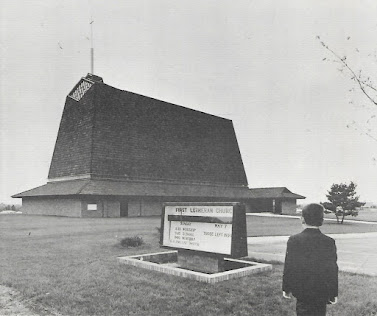“Let all that you do be done in love”
By Bishop Brian Maas
That phrase comes from the guiding
text chosen by the Nebraska Synod staff, from 1 Corinthians 16: “Keep alert, stand firm in your faith, be
courageous, be strong. Let all that you do be done in love.” In the
work we do—and to be honest, in the daily living in community that most of us
do—there is no way to do things in love if we aren’t alert to God’s presence,
grounded in faith, and courageous and strong in carrying out our tasks.
We live in a generation addicted to “liking” things. Social
media abounds with button-click “likes.” Few of us are unaware of, or
unaffected by, how many “likes” a post gets. But wanting to be liked isn’t new,
especially among good church folk, and particularly among their leaders. For
the most part, we pastors really like
to be liked. And the church needs that, to a point—it’s hard to be led well by
sociopaths. There are skills that help make us likable, and those skills make
for more effective care, communication and leadership.
Trouble is, being liked is a two-edged sword. Far more so in
our territory, where “Nebraska Nice” is a complement and a curse. We all want to be liked (well, almost
all). That makes us vulnerable to
people—even, sometimes especially, church
people—who become skilled in telling us they don’t like us, that “lots of
people” don’t like us, and that the likable niceness of our congregation is
threatened by what pastor/leader/fill-in-the-blank is doing and how they’re
doing it.
We live at a difficult intersection—when the anxiety of
decline in our congregations (and the church at large) runs into our culture’s
new permission, even expectation, of individuals being jerks in public. Common
civility used to be enough to keep potential bullies at bay. No more. And
people prone to bullying can sense when (a) being liked is really important to individuals
and communities, and (b) there is shared anxiety to exploit.
This much is not new. There were bullies in the Apostle
Paul’s congregations. They’re hard to change. What can change is our response.
If we are committed to loving rather than mere liking, we can endure a higher
level of anxiety. If we are alert to God’s presence and grounded in our faith,
we can bear being not liked, even attacked. If we are courageous and strong, we
can stand up to threats.
No, it’s not easy. But show me easy in the phrase, “deny
yourself and take up your cross.” Being a disciple of Jesus Christ is not easy.
Faith is not easy. Love is not easy. But love is wonderful. Faith and
discipleship, knowing God’s constant presence and finding courage and strength
in it; that too is wonderful.
We live in a world filled with (and are sometimes ourselves)
Sunday-morning “followers” of Jesus, who “like” him when it’s convenient. Our calling
is to be every-day disciples, who love him—and his world—especially when it’s
difficult. The more we live into the latter, the freer we are to respond to
anxiety with hope, and to respond to bullies with resolve. Jesus loves even the
jerks. But that doesn’t mean he likes how they act. Or expects the rest of us
to put up with it.
So practice likability; it’s good for you. But keep alert for
God’s presence. Stand firm in your faith. Be courageous and strong. Let all
that you do be done in love.




Comments
Post a Comment